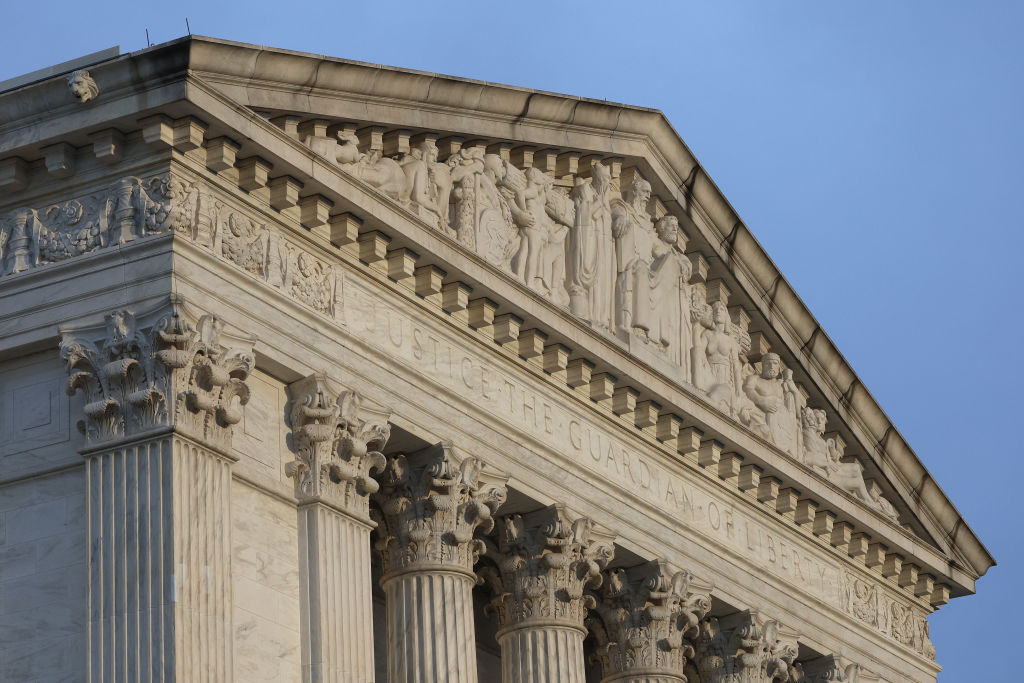Trump administration withdraws request to the Supreme Court for it to hear dispute over foreign-aid payment


Updated on Aug. 29 at 6:13 p.m.
The Trump administration informed a federal appeals court on Tuesday evening that it has returned to the Supreme Court, seeking to pause an order by a federal district court in Washington, D.C., that requires the federal government to pay billions of dollars in foreign aid that Congress has already allocated. In a 36-page filing attached to a letter submitted to the U.S. Court of Appeals for the D.C. Circuit (and published online by Josh Gerstein of Politico), U.S. Solicitor General D. John Sauer told the court that unless it steps in, “it will effectively force the government to rapidly obligate some $12 billion in foreign-aid funds that would expire September 30 and to continue obligating tens of billions of dollars more—overriding the Executive Branch’s foreign-policy judgments regarding whether to pursue rescissions and thwarting interbranch dialogue.”
The dispute stems from a Jan. 20 executive order signed by President Donald Trump. That order instructed federal agencies to “immediately pause new obligations and disbursements of development assistance funds to foreign countries and implementing non-governmental organizations” so as to give the government time to review the programs to ensure that they were consistent with U.S. foreign policy objectives. Secretary of State Marco Rubio then issued a memorandum freezing foreign-aid programs funded by the State Department and the U.S. Agency for International Development.
The challengers in the case are groups that have received (or whose members have received) foreign aid funds. They filed lawsuits in the U.S. District Court for the District of Columbia, seeking to bar the federal government from implementing the executive order.
After U.S. District Judge Amir Ali issued an order on Feb. 25 directing the State Department and USAID to pay contractors and grant recipients within 36 hours for work that had already been done, the Trump administration came to the Supreme Court, asking the justices to intervene.
On March 5, a divided court ultimately declined to do so, observing that the deadline to comply with Ali’s order had already passed. in a brief unsigned opinion, the court instead told Ali to “clarify what obligations the Government must fulfill to ensure compliance” with the temporary restraining order that Ali had entered in the case.
When the case returned to the district court, Ali concluded (among other things) that the Trump administration had likely violated both federal law and the Constitution when it canceled funds that Congress had earmarked for foreign aid. Ali barred the government “from unlawfully impounding congressionally appropriated foreign aid funds” and directed the government to “make available for obligation the full amount of funds that Congress” had allocated.
The U.S. Court of Appeals for the District of Columbia Circuit fast-tracked the government’s appeal, and a three-judge panel of that court lifted Ali’s order. That prompted the challengers to go to the full court of appeals, which, as of Tuesday, had not yet acted on their request to reinstate Ali’s order or the government’s request to issue the mandate (which would allow the panel’s ruling to go into effect). As a result, Ali’s order remained in place.
In his filing on Tuesday night, Sauer contended that the district court had “installed itself as supervisor-in-chief of further spending and recissions proposals, issuing a preliminary injunction ordering the government to make available for obligation tens of billions of dollars in appropriated foreign aid funds and to spend many billions of dollars by September 30, before those appropriations expire.”
In doing so, Sauer wrote, “the district court ha[d] issued a blueprint for virtually any prospective recipient of federal funds to circumvent the” procedures created by Congress “and enlist district courts to preempt and thwart negotiations between the political branches over the expenditure of appropriated funds.”
Sauer asked the court to move quickly on the government’s request, with either a ruling or an administrative stay – which would put Ali’s order on hold to give the court additional time to rule on the request – by Sept. 2.
On Thursday night, the D.C. Circuit took a series of steps that, according to Judge Florence Pan, rendered the Trump administration’s request for the Supreme Court to intervene moot.
The original three-judge panel revised its opinion, prompting the full D.C. Circuit to deny the challengers’ motion for rehearing en banc. The D.C. Circuit also issued the mandate – the official order notifying the lower court of its decision – which returned the case to the district court.
In an opinion dissenting from the denial of rehearing en banc that was echoed by Judge Bradley Garcia in a separate statement, Pan explained that “the full court’s decision is based, in large part, on the panel’s revision of its original opinion to provide a pathway for the grantees in this case to pursue relief under the” Administrative Procedure Act. Returning the case to the district court, Pan wrote, “may be the most efficient way for the grantees to seek access to the $15 billion of appropriated funds that are set to expire on September 30.”
On Friday night, in a letter to Scott Harris, the clerk of the Supreme Court, Sauer withdrew the government’s request to pause Ali’s order. Sauer pointed to the D.C. Circuit’s actions on Thursday night, explaining that they had “giv[en] effect to the vacatur of the preliminary injunction. With the injunction lifted,” he said, “the President then swiftly transmitted proposed rescissions” of the funding to Congress.
Posted in Court News, Emergency appeals and applications
Cases: Department of State v. AIDS Vaccine Advocacy Coalition, Trump v. Global Health Council